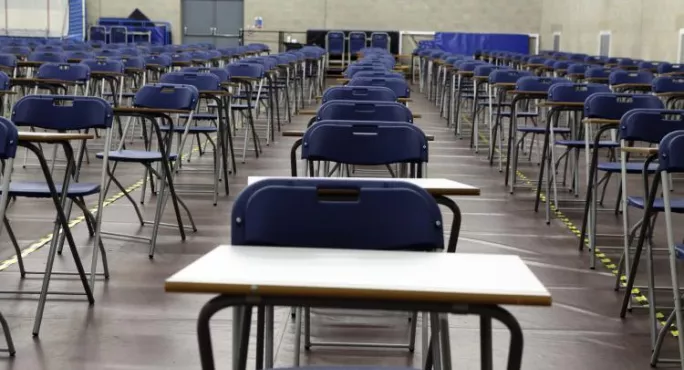Yet again, his face falls as he is confronted with something else he cannot access. There is no point in removing the lid from his highlighter to underline key words; he can’t read the text anyway. The most likely scenario is that he removes and replaces the lid repetitively, much to my annoyance as I watch him staring blankly at the page.
This situation is the equivalent of asking him to land a helicopter in the playing field. To him, it is beyond the realms of possibility.
This is my Year 10, Set 4 English class. They are struggling with reading, as they have done their entire lives, and their frustration is palpable. The exams they have to face have no scope for differentiation, are not open for exam concessions and, at the end of the year it will be just the students on their own - no support; no reassurance; no hope.
Our education system is promoting the idea that we challenge the most able. But what does this mean for those who do not fit into this elevated category? The new English GCSE demands that pupils read, understand and interpret texts from the 19th, 20th and 21st centuries.
This is not a new concept. However, never before have they been asked to read a pre-19th century non-fiction text. Who wants to read an article from the Victorian era - history teachers?
Lack of options
Grammar schools are not the solution. So what is? If we revert back to the once-hailed functional skills or entry-level qualifications, are we promoting a growth mindset in our pupils? Or merely encouraging a pessimistic attitude to their learning journey?
If this is the only option for our lower attainers, then it is more likely than not that these children will end up on the scrap-heap of the education system. Their progress 8 attainment figure will not be in the realms of making an impact on school results and so they will bumble along, learning what they can, keeping their faces hidden from the teacher in order to avoid any questions that they cannot answer.
High aspirations in schools are vital. Being able to stretch and challenge is an important part of developing core skills in young people and encouraging the perseverance, resilience and problem-solving skills that are essential for adult life. But I question whether this attitude to learning is really appropriate for all and I worry that we are preparing some pupils to fail.
As I am bouncing around encouraging a love of analysing Shakespeare, Stevenson and poetry from the ages, one particular student is still sat in the corner, face down, too despondent to remove the lid of his highlighter.
Of course, I can go over to him and work with him individually, for a few minutes at least, until I have to move onto the next pupil who needs my help. I can provide him with differentiated resources and vocabulary lists to help him understand this task and encourage him to try his best at it in the lesson.
Yet as far as he is concerned, what would be the point of that? When it comes to the exam, he still won’t be able to read the paper independently anyway.
The writer is a secondary English teacher from Bristol




